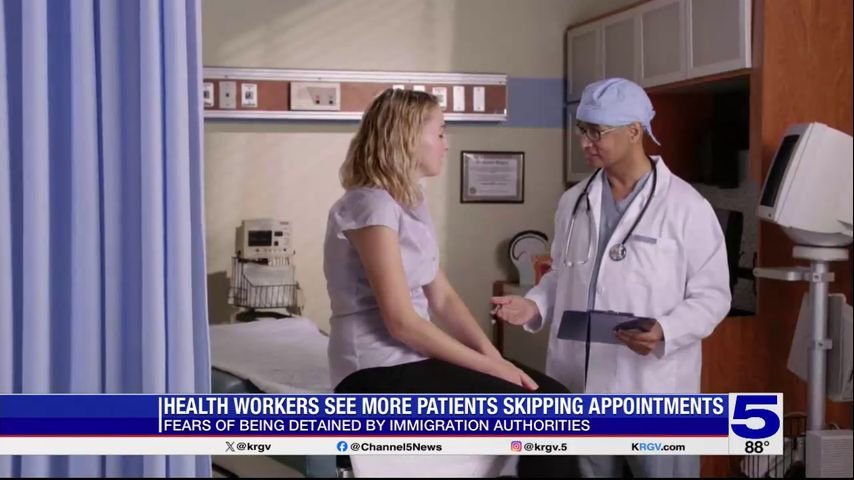Concerns Over Immigration Enforcement Impacting Healthcare in the Rio Grande Valley
Healthcare professionals in the Rio Grande Valley are raised alarms over an alarming trend: patients are increasingly skipping medical appointments out of fear of deportation. As the political climate surrounding immigration becomes more charged, many residents are hesitant to seek necessary healthcare services, significantly impacting their health and well-being.
Fear of Detention Discourages Patients from Seeking Care
According to Leticia Sosa, Director of Outpatient Services at South Texas Health System, the apprehensions among patients have grown markedly. She stated, "We have seen patients that have not shown up due to fear." This trend is troubling, especially given the ongoing health challenges many individuals face.
Historically, federal immigration agents were restricted from making arrests at sensitive locations such as hospitals and clinics. However, changes to these policies since January have escalated concerns, with many individuals choosing to forgo necessary medical appointments rather than risk encountering immigration authorities.
Policy Changes Affecting Healthcare Access
The rollback of protective policies has put the health of countless undocumented individuals and those living in fear at stake. For many residents in the Rio Grande Valley, the fear of being detained looms large, overshadowing their need for medical assistance.
Healthcare providers urge patients to understand that there are safer alternatives available, especially for those who may be too anxious to attend in-person appointments.
Telehealth Services as a Solution
To alleviate some of the hesitancies associated with seeking in-person care, medical professionals are promoting telehealth options. "We do provide them with telehealth options where the patients can still continue that support without having that fear," Sosa explained. These virtual consultations allow patients to receive medical advice and prescriptions without the added anxiety of entering a medical facility.
Building a Safety Plan
In addition to utilizing telehealth services, immigration advocates recommend that patients develop a safety plan to prepare for any eventuality during medical visits. This includes establishing emergency contacts and ensuring that important documents are accessible.
If an individual is detained, having a plan can make a significant difference in managing the situation effectively. Awareness and preparedness can ease some of the anxiety associated with seeking medical attention.
The Ongoing Need for Healthcare Access
The implications of these fears are significant, as skipping necessary medical appointments can lead to more severe health issues in the long run. Healthcare organizations urge the community to consider the consequences of avoiding medical care and emphasize the importance of seeking help when needed.
Moving Forward
As we navigate this challenging landscape, it’s essential for healthcare institutions, community leaders, and advocacy groups to work together to foster a safe environment for all individuals, regardless of immigration status. By promoting telehealth and creating comprehensive safety plans, we can help mitigate the fear associated with seeking healthcare.
For more insights into the changes in immigration policies during recent years and their implications on health access, you can read about the ongoing impact on communities here.
Conclusion
The growing trend of patients avoiding medical appointments due to immigration fears demands immediate attention from both healthcare providers and policymakers. It’s vital to advocate for compassionate and accessible healthcare for every individual, regardless of their immigration status. By integrating innovative solutions like telehealth and ensuring proper safety measures are in place, we can uphold the right to health and wellness in our communities.
For more information about healthcare services in the Rio Grande Valley, visit South Texas Health System or consult your local healthcare provider.


